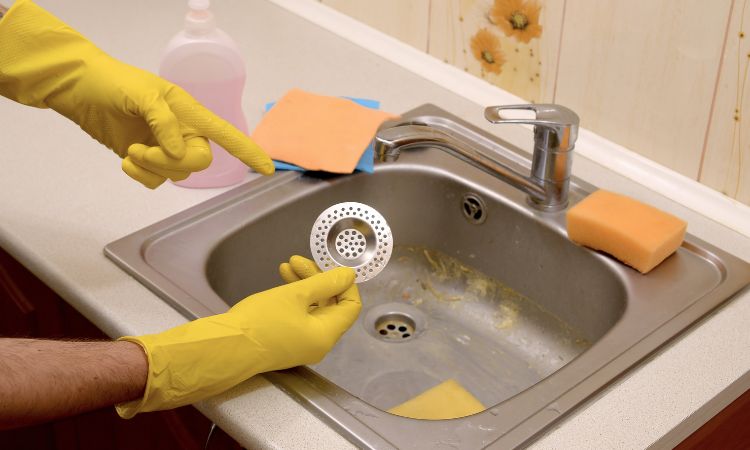What're your opinions on Essential DIY Bathroom Plumbing Tips Every Homeowner?

For brand-new house owners, understanding and maintaining bathroom plumbing can conserve both time and money by protecting against expensive problems down the line. Here are some necessary shower room plumbing pointers to help you maintain everything running efficiently.
Familiarize Yourself with the Main Shut-Off Shutoff
Understanding where the primary water shut-off valve lies in your home is important. This permits you to promptly turn off the water supply in case of major leakages or during pipes emergency situations, stopping substantial water damage.
Frequently Inspect for Leaks
Tiny leakages can result in big problems. Consistently inspect under sinks, around commodes, and near pipes fixtures for any type of signs of leakages. Look for dampness, tiny drips, or rust. Capturing and repairing leaks early can stop extra serious damages and save water.
Don't Ignore Slow Drains Pipes
If your sink or bath tub is draining slowly, it's commonly a sign of an obstruction creating. Addressing this very early can protect against a total obstruction. Utilize a bettor or a plumber's snake to clear out particles. Avoid utilizing chemical drainpipe cleaners as they can damage your pipelines gradually.
Know What Not to Flush
Toilets are not waste disposal unit. Stay clear of flushing anything besides bathroom tissue and human waste. Things like wipes, womanly health items, and cotton bud need to be disposed of in the trash to avoid clogs and sewer back-ups.
Mount Strainers in Drains
Area strainers in your sink and bath tub drains pipes to catch hair and other debris before they enter your plumbing system. Cleaning up the strainers regularly will aid avoid buildup and keep water streaming freely.
Maintain Your Hot Water Heater
Ensure your hot water heater is set to an ideal temperature (generally around 120 levels Fahrenheit) to prevent hot and reduce energy use. Flush the tank each year to eliminate debris build-up, which can reduce the efficiency and life expectancy of your heater.
Upgrade Your Components
If your home has older fixtures, think about upgrading to a lot more reliable models. Modern bathrooms, showerheads, and taps are created to make use of less water while giving good pressure, which can significantly reduce your water bill and ecological footprint.
Beware with Do It Yourself Plumbing Services
While it's appealing to deal with all home repairs by yourself, beware with pipes. Some concerns might require specialist knowledge, specifically if they include primary water lines or sewer repairs. Hiring a professional can occasionally be more economical than do it yourself, particularly if it protects against more damages.
Plan For Winter
Secure your pipes from freezing during cold weather by insulating pipelines in unheated locations like cellars, attics, and garages. Throughout extreme cool, allow cold water drip from taps served by exposed pipelines to aid prevent cold.
Arrange Routine Maintenance
Consider organizing yearly inspections with a licensed plumbing technician. They can spot issues that you might miss out on, such as hidden leaks or deterioration on pipes and components. Regular upkeep helps expand the life of your pipes system and can protect against emergencies.
Conclusion
Understanding and preserving your home's restroom pipes can protect against many common issues. By following these vital suggestions, you can guarantee your bathroom continues to be functional and reliable, conserving you money and time over time.
Essential Plumbing Tips for Homeowners: Keep Your Pipes Flowing Smoothly
As a homeowner, understanding the basics of your plumbing system can save you time, money, and a lot of headaches. Plumbing issues can range from minor annoyances like dripping faucets to major problems like burst pipes that cause significant damage. This guide provides essential tips to help you maintain your plumbing system and tackle common issues.
Understanding Your Plumbing System
Supply System: Brings fresh water into your home from a municipal source or a well. Drain-Waste-Vent System: Removes wastewater and vents sewer gases outside. Fixtures and Appliances: Includes sinks, toilets, showers, dishwashers, and washing machines. Basic Maintenance Tips
Regular Inspections: Periodically check for leaks, corrosion, and other signs of wear and tear. Look under sinks, around toilets, and near water heaters. Know Your Main Shut-Off Valve: In case of a major leak, you’ll need to shut off the water quickly. Ensure everyone in your household knows where the main shut-off valve is located. Prevent Frozen Pipes: In cold climates, insulate exposed pipes and let faucets drip during extreme cold to prevent freezing. Use Strainers: Install strainers in sinks and tubs to catch hair, food particles, and other debris that can cause clogs. Common Plumbing Issues and Solutions
Clogged Drains:
Prevention: Avoid pouring grease down the drain and use drain screens to catch debris. DIY Fix: Use a plunger or a plumbing snake to clear minor clogs. For stubborn clogs, a mixture of baking soda and vinegar can sometimes help. Leaky Faucets:
Prevention: Replace washers and seals regularly. DIY Fix: Turn off the water supply, disassemble the faucet, and replace worn parts.

Check Us Out